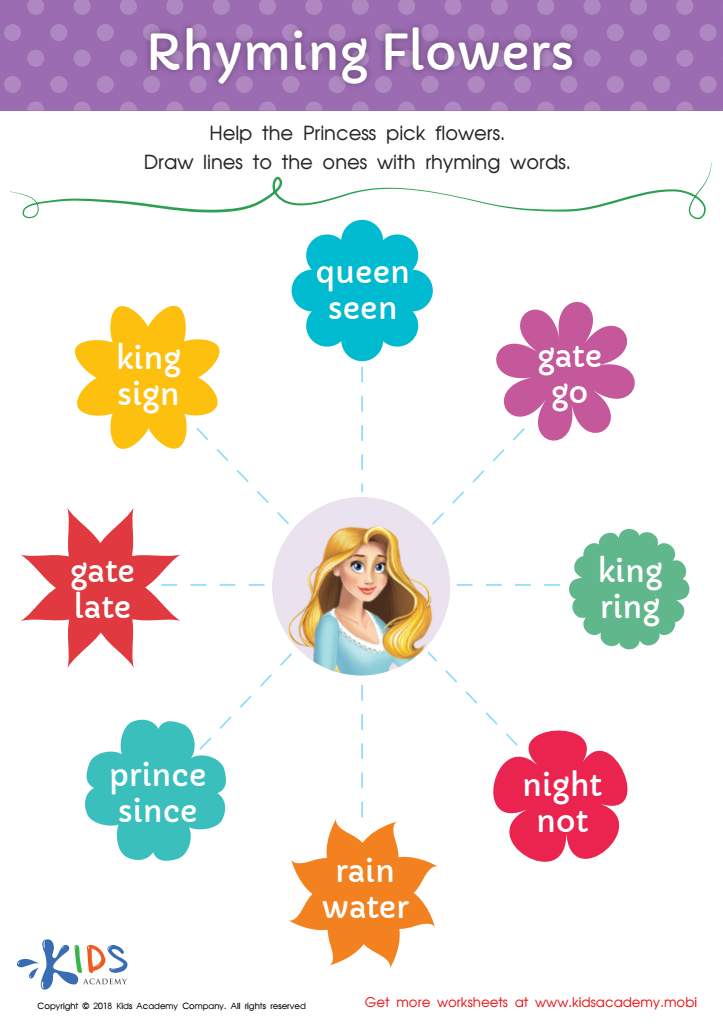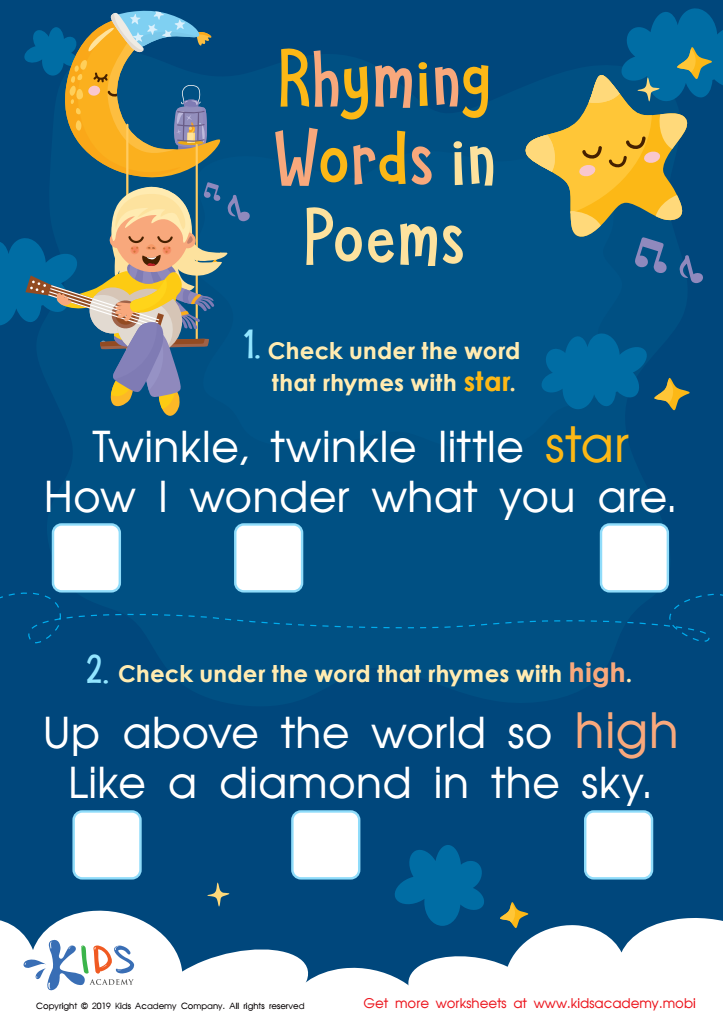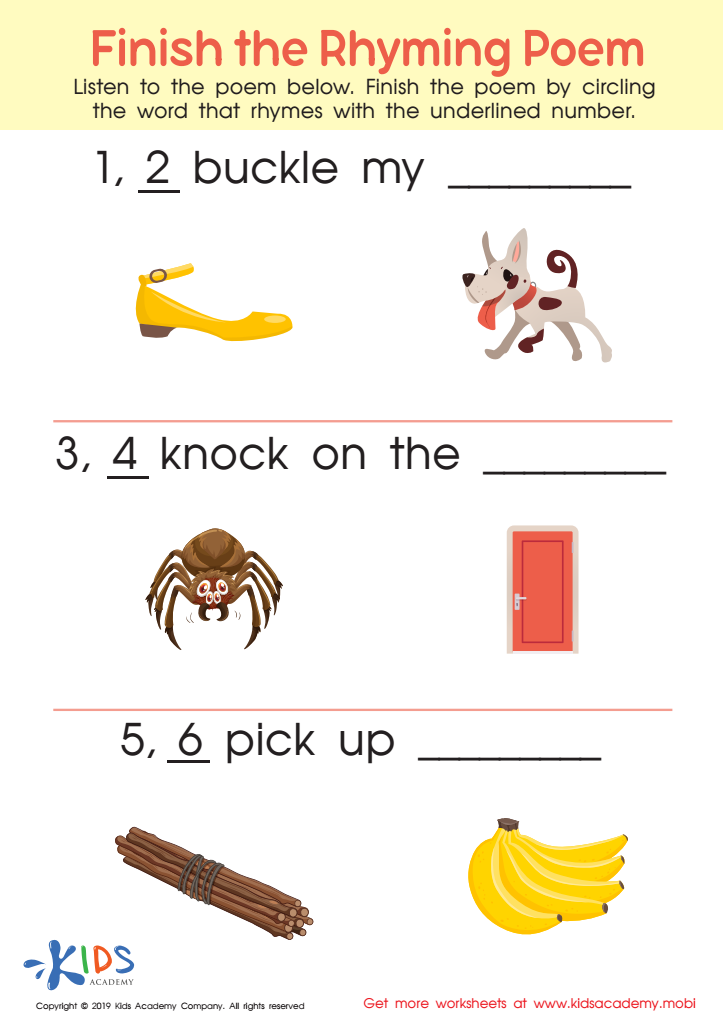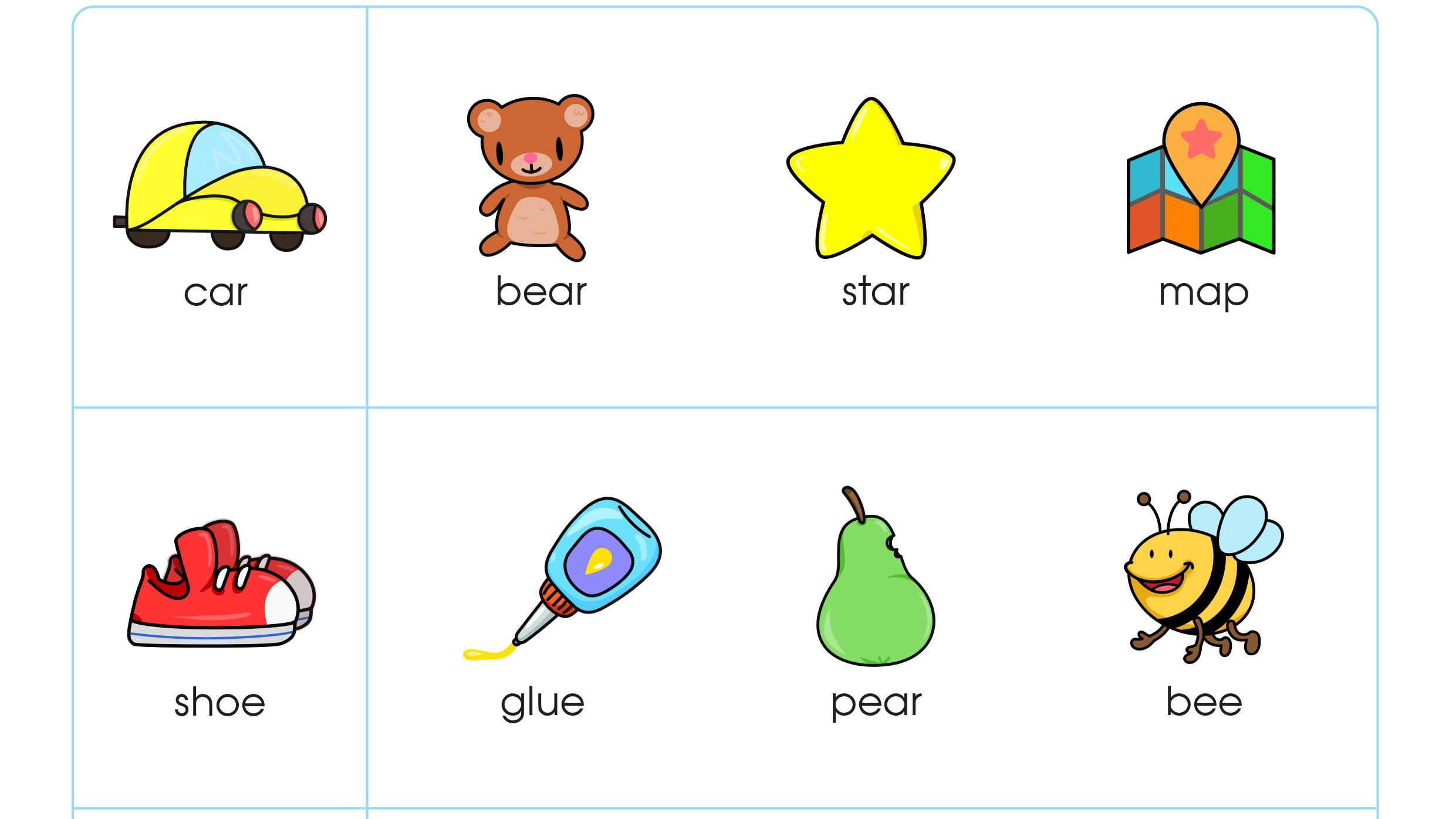Vocabulary enhancement Normal Rhyming Words Worksheets for Ages 4-6
6 filtered results
-
From - To
Enhance your child's vocabulary with our engaging Normal Rhyming Words Worksheets, designed specifically for ages 4-6! These versatile worksheets help young learners recognize and understand rhyming words, boosting language skills while making learning fun. Through enjoyable exercises, children will explore various word families, improving their pronunciation and fluency. Our colorful and interactive activities capture children's interest, encouraging creativity and critical thinking. These worksheets are perfect for classrooms or at-home learning, providing a great foundation for future reading and writing skills. Give your child the gift of language mastery while they play and rhyme their way to success!


Rhyming Flowers Worksheet


Rhyming Words Rhyming Worksheet


First Words: Picture Rhymes Worksheet


Rhyming Words in Poems Worksheet


Finish Rhyming Poem Worksheet
Vocabulary enhancement through normal rhyming words is crucial for children aged 4-6 as it significantly contributes to their language development and cognitive skills. First, rhyming words help children recognize sounds and patterns within language, laying a solid foundation for literacy. When children engage with rhymes, they become more attuned to word sounds, which aids in phonemic awareness—an essential skill for reading and writing.
Additionally, rhyming activities often enhance memory and recall. Children can more easily remember and retrieve words that sound similar, reinforcing their vocabulary and comprehension skills. Engaging with rhymes also nurtures creativity and imagination, allowing children to connect emotionally with language through fun and playful interactions.
Furthermore, teaching rhyming words can significantly improve children's confidence in communication. As they master rhythmic speech through songs and poems, children feel empowered to express themselves verbally, paving the way for clearer and more effective communication.
Lastly, families and educators can facilitate a love for reading by integrating rhymes into everyday life through stories, games, and songs. This joyful exposure not only strengthens vocabulary but instills a lifelong love for learning and literacy, making early rhyming practices an invaluable tool in a child's developmental journey.
 Assign to My Students
Assign to My Students
















